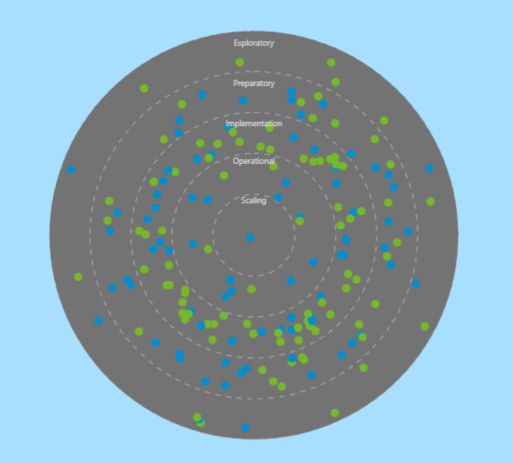Artificial Intelligence in the Energy sector
Artificial intelligence (AI) is revolutionising the energy sector, providing innovative solutions to some of the most pressing challenges in energy management and grid optimisation. At the heart of this transformation is our project DATA CELLAR, aimed at creating a federated energy dataspace to support local energy communities across the EU. By integrating advanced AI models and data-driven energy services, DATA CELLAR is poised to accelerate the energy transition and enhance the efficiency and sustainability of energy systems.
The potential of AI in energy management
AI’s impact on the energy sector is multifaceted, addressing key areas such as grid planning, optimisation of renewable energy uptake, and efficiency improvements. By analysing vast amounts of data, AI can significantly reduce the cost of grid maintenance, identify potential issues before they escalate, and optimise the use of grid capacity. This technological advancement is crucial for meeting the energy sector’s challenges, including the integration of renewable energy sources and the enhancement of grid stability.
One of AI’s significant contributions is its ability to process and analyse large volumes of data, which can be used to improve several aspects of energy management. AI helps determine the most suitable locations for energy infrastructure, ensuring efficient use of resources and minimising environmental impact. It can optimise grid operations, facilitating the efficient integration of renewable energy sources and making the best use of existing grid capacity.
By analysing data from various sources, AI can predict potential failures and maintenance needs, reducing downtime and associated costs. Additionally, AI provides valuable insights into energy market trends, helping stakeholders make informed decisions and plan for future needs.
The relevance of AI use cases in the energy sector
AI’s applications in the energy sector are diverse, with several prominent use cases demonstrating its potential.
In wind energy development, AI optimises the placement and maintenance of wind turbines, enhancing the efficiency and productivity of wind farms. For decarbonised city infrastructure, AI supports the development of sustainable urban energy systems, reducing carbon footprints and improving energy efficiency. In advanced building management systems, AI optimises energy use in buildings, ensuring systems operate efficiently and do not contribute to unnecessary energy consumption. AI also enhances the efficiency of sustainable district heating and cooling systems, making them more sustainable.
Moreover, AI manages the integration of electric vehicles into the grid, optimising charging schedules and energy distribution. It helps balance supply and demand, effectively managing energy surpluses. These applications underscore AI’s role in making energy grids smarter, enhancing the integration of renewable energy, and optimising energy storage solutions.
Challenges and opportunities
AI presents many challenges and opportunities for the energy sector that are being discussed in the most important European events and meetings, for instance, during the last edition of the European Sustainable Energy Week (EUSEW) in Brussels last month.
Despite its vast potential, the integration of AI into the energy sector comes with challenges. Ensuring data quality and availability, testing and validating AI models, and co-creating solutions with stakeholders are critical steps to harness AI’s full potential. Additionally, managing the energy consumption of AI technologies themselves is essential to maintain sustainability. Here is where the European Commission is focusing its efforts through programs such as Horizon Europe in order to support companies to collaborate in innovation actions to face those challenges.
However, the opportunities presented by AI are immense. AI-driven innovations can make energy grids smarter, enhance the integration of renewable energy, and optimise energy storage solutions. Digital twins, condition monitoring, and predictive maintenance are just a few areas where AI will play a crucial role in the future of energy management.
The role of AI in DATA CELLAR
DATA CELLAR’s objective is to develop a dynamic data hub that ensures continuously updated, reliable, and credible data. This hub will facilitate the integration and management of LECs, leveraging a blockchain-based tokenisation scheme to reward data sharing and AI model provisioning. The project aims to create a user-friendly data marketplace where stakeholders can trade data and pre-trained AI models, simplifying data analytics and business intelligence operations.





